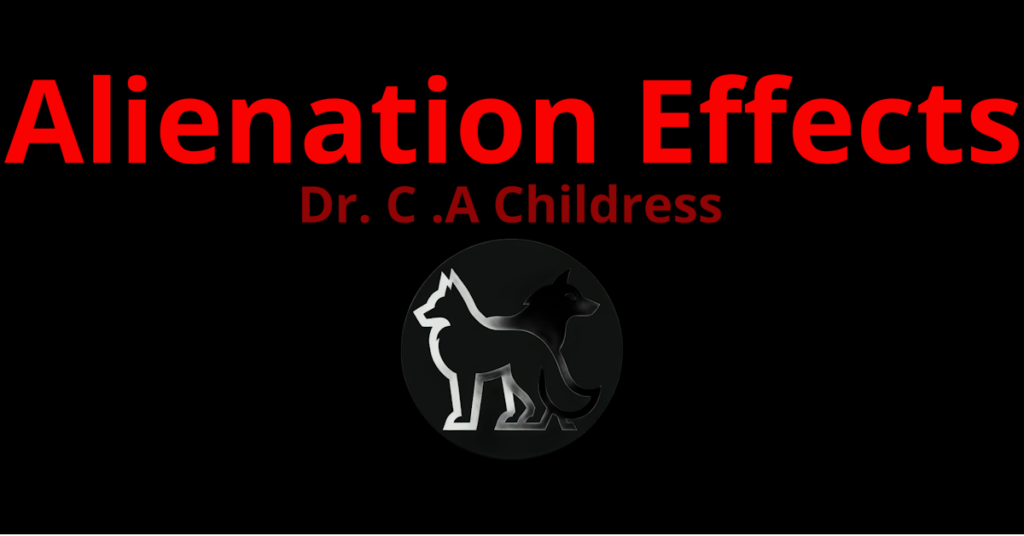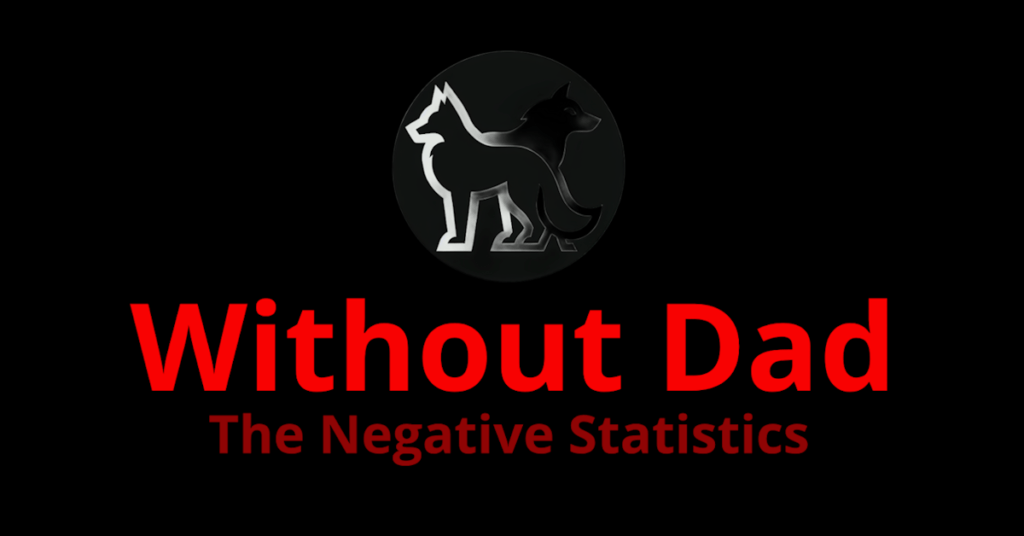One Year. No Visits. Father’s Letter To Ex & Church. Ignored.

Introduction: A Father’s Heartfelt Plea: -Author Unknown
As a loving father, I find myself grappling with an indescribable pain that stems from the heart-wrenching experience of parental alienation. This is not just a legal battle or a custody dispute; it is a profound emotional torment that affects every aspect of my life. My children, whom I cherish more than anything, have been distanced from me due to a series of misconceptions and false narratives. The depth of my love for them remains unwavering, even as I face this challenging ordeal.
The purpose of this letter is to bring to light the distressing reality of my situation and to address the individuals who have been misled about my character and intentions. To the mother of my children, and to the members of our church community, I implore you to understand the truth behind this painful separation. Misunderstandings and misinformation have painted a distorted picture of who I am and what I stand for. My goal is not to create conflict, but to bridge the gap that has been unfairly widened.
Parental alienation is a silent yet devastating issue that affects not just the parents involved, but most importantly, the children. They are caught in a web of confusion and emotional distress, deprived of the love and support of both parents. It is my hope that by sharing my story, I can shed light on the effects of this damaging phenomenon and appeal to the compassion and reason of those who have the power to make a difference.
In the coming sections, I will delve into the specifics of my experience, the impact on my children, and the broader implications for our community. This is a plea for understanding, for reconciliation, and most importantly, for the well-being of my children. Let us come together to address this issue with the empathy and fairness it deserves.
Parental alienation is a complex and often misunderstood phenomenon where one parent manipulates a child to unjustly reject the other parent. This behavior, frequently driven by unresolved conflicts and personal grievances, detrimentally affects both the alienated parent and the child. The manipulation may manifest through subtle or overt actions, such as denigrating the other parent, limiting contact, or creating false narratives around the parent’s behavior and intentions.
The repercussions on the alienated parent are profound. They experience a sense of loss, emotional distress, and helplessness, as their once warm relationship with their child deteriorates without just cause. This rejection is not only painful but also unjust, as the alienated parent is often a loving and responsible figure who is unfairly sidelined from the child’s life.
For the child, the impact of parental alienation is equally, if not more, severe. Dr. Craig Childress, a clinical psychologist known for his work on this subject, highlights the psychological trauma inflicted on children subjected to parental alienation. Children may develop a distorted view of reality, internalizing the negative narratives about the alienated parent. This can lead to long-term emotional and psychological issues, including anxiety, depression, and impaired ability to form healthy relationships in the future. The child’s loyalty conflicts and the pressure to choose sides create an environment of constant emotional turmoil.
Moreover, parental alienation disrupts the family unit’s stability, fostering an atmosphere of mistrust and conflict. The child, caught in the crossfire, is deprived of the balanced nurturing that comes from a healthy relationship with both parents. This manipulative behavior not only undermines the alienated parent’s role but also deprives the child of the unconditional love and support they need from both parents.
Understanding the gravity of parental alienation and its far-reaching impact is crucial for addressing and mitigating its effects. By raising awareness and fostering supportive interventions, communities can help protect children from the harmful consequences of such manipulative behaviors.
Dear Mother,
As a father deeply invested in the well-being of our children, I implore you to consider the profound impact that parental alienation is having on their lives. This isn’t merely about the strain it puts on my relationship with them; it is about the emotional and psychological injuries that they are enduring. When a parent intentionally or unintentionally fosters an environment where the children feel compelled to choose sides, it disrupts their sense of security and stability.
The actions of alienation extend beyond the immediate emotional pain. They sow seeds of confusion, anxiety, and mistrust that can linger throughout the children’s lives. The absence of a balanced relationship with both parents can lead to complications in their own future relationships, causing a ripple effect of emotional turmoil. Our children’s ability to form healthy, trusting relationships in adulthood is at stake.
It is important to recognize that the love and bond children share with their parents are fundamental to their emotional development. By undermining this bond, we are inadvertently setting them up for long-term psychological challenges. Studies have shown that children who experience parental alienation often struggle with self-esteem issues, depression, and difficulties in social interactions. Is this the future we want for our children?
I understand that conflicts and disagreements between us may exist, but the resolution of these issues should not come at the expense of our children’s happiness and mental health. They deserve to grow up in an environment where they feel loved and supported by both parents. I plead with you to reconsider the path of alienation. Let’s work together to foster a nurturing and harmonious environment for our children, ensuring they have the opportunity to develop into well-adjusted, emotionally healthy adults.
Our children’s future is too precious to be overshadowed by our conflicts. Let us, as parents, rise above our differences and prioritize their well-being. They deserve nothing less.
The Role of the Church Community
The church community holds a profound responsibility in shaping the moral and ethical framework of its members. When it comes to delicate family matters, such as parental alienation, the church’s role becomes even more critical. However, in some instances, the church may inadvertently contribute to the problem by accepting one side of the story without seeking a comprehensive understanding of the situation. By aligning with one parent’s narrative without proper discernment, the church can unintentionally support falsehoods and deepen familial divisions. It is imperative for church leaders and members to approach such sensitive issues with an unwavering commitment to truth and reconciliation.
The church is fundamentally a place of love, support, and healing. It should foster an environment where all parties involved in a conflict feel heard and supported. When a parent feels alienated due to the spreading of lies, it is essential for the church to step in not as a judge but as a mediator. Encouraging open dialogue and promoting a balanced view can help in uncovering the truth and addressing misunderstandings. The church must emphasize the importance of understanding the situation from both perspectives, ensuring that any support provided is rooted in truth and compassion.
Moreover, the church community should actively work towards promoting reconciliation. This involves creating opportunities for both parents to come together in a safe and supportive environment, where they can express their concerns and work towards a resolution. The church’s guidance in such matters can be invaluable, offering spiritual and emotional support while advocating for truth and justice. By fostering an atmosphere of understanding and forgiveness, the church can help mend broken relationships and restore peace within the family.
Ultimately, the church’s role is to stand as a beacon of truth and love. By seeking to understand the full context of parental alienation and addressing it with empathy and fairness, the church can play a pivotal role in healing and uniting families. It is through such efforts that the church can truly fulfill its mission of promoting harmony and reconciliation within the community.
The Unnaturalness of Parental Alienation
In the animal kingdom, the concept of parental alienation is notably absent. Across various species, the primary instinct of animals is to nurture and protect their offspring, ensuring their survival and well-being. From the fierce maternal instincts of a lioness protecting her cubs to the collaborative parenting observed among bird species, the emphasis is always on safeguarding the progeny and fostering a stable upbringing.
Unlike humans, animals do not engage in behaviors that intentionally estrange their offspring from one of their parents. This natural inclination towards unity and protection is starkly contrasted by the phenomenon of parental alienation seen in some human communities. Such alienation, wherein one parent deliberately distances a child from the other parent, is an unnatural and harmful act. It disrupts the innate bond that should exist between parents and their children, inflicting emotional and psychological damage on the child.
The cruelty of parental alienation lies in its deliberate opposition to these natural instincts. Instead of nurturing the child’s relationship with both parents, it creates an environment of division and hostility. This behavior is not only detrimental to the child’s developmental needs but also contradicts the fundamental principles of familial bonds observed in nature. No other species engages in such a destructive practice, highlighting the severity and unnaturalness of this issue in human society.
By drawing this comparison, it becomes evident that parental alienation is a deviation from the natural order of parenting. It undermines the essential nurturing and protective roles that parents are meant to fulfill, leading to long-lasting negative impacts on the family unit. Recognizing the unnaturalness and cruelty of parental alienation is a crucial step towards addressing and mitigating its effects within our communities.
The Role of Personality Disorders in Parental Alienation
Parental alienation, a distressing phenomenon where a child becomes estranged from one parent due to the psychological manipulation by the other, is often rooted in underlying personality disorders. It is almost impossible for children to reject a parent without some form of external coercion or influence. Dr. Craig Childress, a prominent figure in the field, has extensively discussed how certain personality disorders can precipitate alienating behaviors, leading to the devastating psychological manipulation of children.
According to Dr. Childress, personality disorders such as Narcissistic Personality Disorder (NPD) and Borderline Personality Disorder (BPD) are frequently implicated in cases of parental alienation. These disorders are characterized by impaired interpersonal functioning, a pervasive pattern of instability in relationships, and an excessive need for control or admiration. Individuals with NPD, for instance, may engage in alienating behaviors as a means to exert dominance and maintain a sense of superiority. Similarly, those with BPD may manipulate the child to avoid abandonment and preserve their emotional security.
The manipulation often manifests in subtle yet powerful ways. Alienating parents might employ tactics such as badmouthing the other parent, creating a narrative of victimhood, or fostering an environment of loyalty conflicts. These actions systematically erode the child’s perception of the targeted parent, ultimately leading to rejection. The child, caught in the crossfire, experiences significant emotional and psychological turmoil, often feeling compelled to align with the alienating parent to maintain a semblance of stability.
Dr. Childress’ work underscores the importance of recognizing the signs of personality disorders in the context of parental alienation. By understanding the link between these disorders and alienating behaviors, mental health professionals and the community at large can better address and mitigate the impact of such manipulation on children. Early intervention and appropriate therapeutic strategies are crucial in restoring the child’s relationship with the alienated parent and fostering a healthier familial dynamic.
A Plea for Reconciliation and Healing
Parental alienation is a profound and deeply painful issue that leaves lasting scars on the hearts of everyone involved, especially the children. As we navigate this complex and emotional terrain, we must center our efforts on reconciliation and healing. The well-being of our children must be our paramount concern, transcending all personal conflicts and grievances. It is essential that both parents come together in a spirit of cooperation to foster a nurturing environment where the emotional and psychological needs of their children are addressed with the utmost care.
In our community and within the church, we have a unique opportunity to model and support healthy co-parenting relationships. This journey towards healing requires open communication, where both parents actively listen to and understand each other’s perspectives. Such dialogue can pave the way for mutual respect and a shared commitment to the children’s best interests. Counseling and support services play a critical role in this process, offering professional guidance to help mend broken relationships and rebuild trust.
It is imperative that we create a supportive network that encourages parents to set aside their differences and work collaboratively. The church community can serve as a sanctuary for those seeking solace and strength, providing a safe space for families to heal. By promoting values of forgiveness, compassion, and understanding, we can help parents move beyond the pain of alienation and towards a place of unity and cooperation.
Let us remember that our actions today will profoundly impact the emotional health and future relationships of our children. By prioritizing their well-being and committing to a path of reconciliation and healing, we can transform the narrative of parental alienation into one of hope and restoration. In doing so, we honor the sanctity of family and the foundational principles that bind us together as a community.
Conclusion: A Hopeful Outlook
As we bring this discussion on parental alienation to a close, it is essential to focus on the hope and healing that can arise from awareness and concerted efforts. Parental alienation, with its profound emotional and psychological impacts, challenges the very fabric of family dynamics. However, through collective understanding and compassion, we can pave the way for reconciliation and renewed relationships.
Our love for our children remains unwavering, and it is this love that fuels our commitment to their well-being. Children deserve to grow up in an environment where they can freely express their love for both parents, unburdened by the tensions and conflicts that parental alienation instigates. By nurturing open communication and fostering a supportive atmosphere, we can help mend the fractured bonds and restore the trust that has been eroded.
The role of the church community in this healing process cannot be overstated. As a bastion of support, the church can offer not only spiritual guidance but also tangible assistance to those grappling with the effects of parental alienation. By promoting a culture of empathy and understanding, the church can act as a sanctuary where families find solace and strength. It is through such collective efforts that we can aspire to bring about positive change, ensuring that every child feels the unconditional love and support of both parents.
Let us, therefore, commit to being vigilant and proactive in addressing parental alienation within our community. By standing together, we can create an environment where love, respect, and mutual understanding prevail. The journey towards healing is undoubtedly challenging, but with hope as our guide, we can work towards a future where every family thrives in harmony and every child feels cherished and secure.








Responses